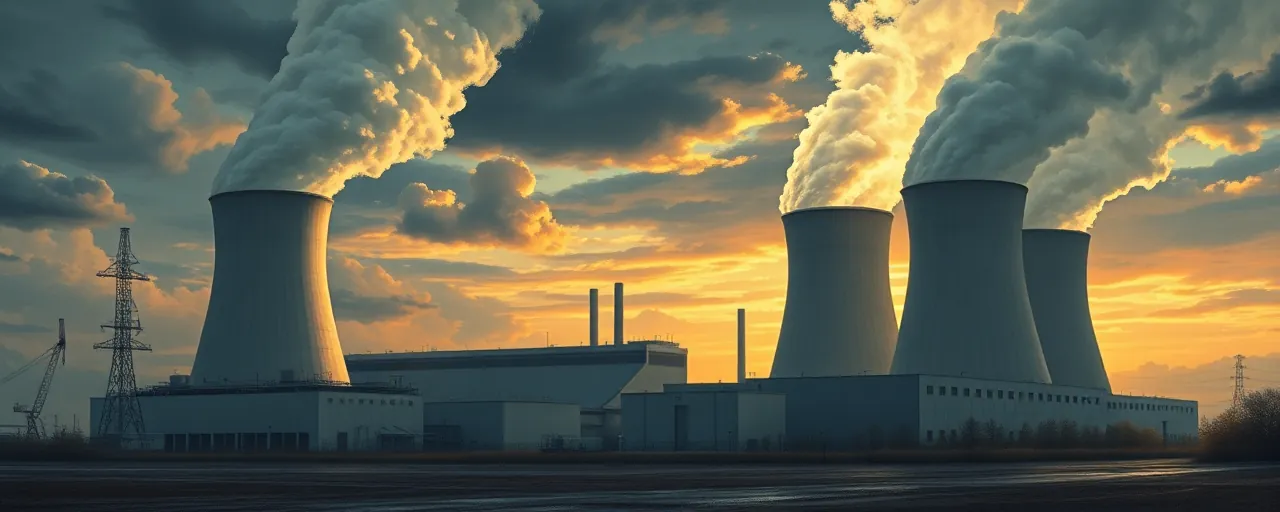A Wake-Up Call From Tehran
Iran’s nuclear program isn’t just a regional headache; it’s a ticking time bomb for the world. The U.S. Department of the Treasury dropped a hammer on April 9, 2025, slapping sanctions on five Iranian entities and one individual tied to the Atomic Energy Organization of Iran (AEOI) and its centrifuge arm, TESA. These aren’t random players; they’re the backbone of Tehran’s uranium enrichment push. Secretary Scott Bessent didn’t mince words: Iran’s pursuit of nuclear weapons threatens America’s safety and destabilizes an already volatile Middle East. He’s right. This isn’t a drill; it’s a clear signal that Tehran’s defiance demands a response.
For too long, the world has watched Iran play a dangerous game, cloaking its weapons ambitions in civilian rhetoric. The Treasury’s move targets the nuts and bolts of that effort, companies like Atbin Ista and Pegah Aluminum, which churn out parts for centrifuges that could one day spin out fissile material for a bomb. It’s a bold step, but the stakes couldn’t be higher. With Israel on edge and Gulf states rattled, Iran’s nuclear brinkmanship isn’t just reckless; it’s a direct challenge to U.S. leadership and global order. We can’t afford to blink.
Sanctions That Bite
The Treasury’s action isn’t some empty gesture. It’s built on Executive Order 13382, a weapon in our arsenal since 2005 to choke off proliferators of weapons of mass destruction. By freezing assets and cutting these entities off from U.S. financial systems, we’re hitting Iran where it hurts: its ability to fund and supply its nuclear machine. Look at the track record. Between 2011 and 2016, sanctions slashed Iran’s GDP growth and forced it to the negotiating table for the JCPOA. That deal wasn’t perfect, but it proved one thing: economic pain works. Today’s designations, targeting TESA’s suppliers and AEOI’s subcontractors, tighten the screws further.
Take Atbin Ista, run by Majid Mosallat, a man who’s been greasing the wheels for TESA’s foreign procurement. Or Pegah Aluminum, cranking out specialized components. These aren’t innocent businesses; they’re cogs in a war machine. Then there’s Thorium Power Company, a new AEOI pet project dabbling in thorium fuels that could breed uranium-233 for weapons. Dual-use tech like this is a proliferation nightmare, and history backs that up; just ask Pakistan’s A.Q. Khan, whose network peddled similar know-how decades ago. The Treasury’s move sends a message: we’re watching, and we’re not playing around.
The Diplomacy Delusion
Some argue we should talk Iran down, offer carrots instead of sticks. They point to the JCPOA as proof diplomacy can work. Nice try, but that ship sailed when Iran ramped up enrichment after the U.S. wisely ditched the deal in 2018. Tehran didn’t flinch; it doubled down, cozying up to China and Russia while building black markets to dodge sanctions. The idea that handshakes and promises will stop a regime hell-bent on deterrence is a fantasy. Iran’s not misunderstood; it’s calculating. The NPT and IAEA inspections sound great on paper, but Tehran’s track record of hiding sites and stonewalling inspectors tells a different story.
Reality check: Iran’s nuclear push isn’t about energy independence; it’s about power. The JCPOA’s expiration looms in October 2025, and without a new deal, Tehran could bolt from the NPT entirely. Sanctions aren’t a cure-all, sure, but they’ve crippled Iran’s economy before, and they can again. Pair that with a firm U.S. stance, and we’ve got leverage. Betting on Tehran’s goodwill is like handing a loaded gun to a cornered adversary. We tried that; it failed. Time to lean on what works.
Why This Matters to You
This isn’t some far-off diplomatic spat. Iran with a nuclear weapon changes everything. Your gas prices spike when Gulf tensions flare. Your tax dollars fund defense against a rogue state that’s already got Hezbollah and Hamas in its pocket. A nuclear Iran could bully its neighbors, spark an arms race, or worse, hand off tech to terrorists. Israel’s already itching to strike, and if that happens, the Middle East explodes. Treasury’s sanctions aren’t just bureaucratic flexing; they’re a firewall between you and that chaos. Every centrifuge we stop is one less threat to your way of life.
The global stakes are just as real. A nuclear Iran shifts the balance, emboldening Russia and China while tying our hands. The U.S. has led the charge against proliferation since the NPT took root in 1968, and backing off now hands Tehran a win it doesn’t deserve. Sanctions signal resolve; they show we’re not afraid to act. If we let Iran slide, we’re not just risking Tehran’s wrath; we’re inviting every wannabe nuclear power to test us. That’s not a world anyone wants to live in.
The Path Forward
Treasury’s designations are a solid start, but they’re not the finish line. Iran’s nuclear program has weathered sanctions before, adapting with shadow networks and foreign allies. We need more; a full-court press that pairs economic strangleholds with diplomatic isolation and, if push comes to shove, military readiness. The U.S. has the tools; Executive Order 13382 and the PATRIOT Act give us teeth to track and freeze illicit funds. International buy-in would amplify the pain, but even solo, America’s financial clout can make Tehran squirm. Hesitation only emboldens them.
Let’s be clear: Iran’s not entitled to a nuclear arsenal. The world’s safer when rogue states face consequences, not coddling. Bessent’s right to call this a menace; it’s on us to prove we mean business. Sanctions worked in the past to drag Iran to talks; now they can remind Tehran that defiance has a price. America’s security, and the world’s, hangs in the balance. We’ve got the upper hand; let’s use it.
